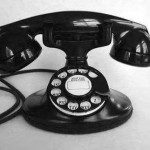Loneliness and Facebook: Learning to Change Our Social Media Behavior
 There are 845 million Facebook users around the world. Of those, 1 in 13 logs on everyday. Amongst the aged 18-34 demographic, close to 50% check their Facebook minutes after waking up, and 28% check it before getting out of bed (guilty…). In essence, we are connected with our friends and family all the time. Why is it then that loneliness is reaching epidemic proportions, especially in the Westernized world?
There are 845 million Facebook users around the world. Of those, 1 in 13 logs on everyday. Amongst the aged 18-34 demographic, close to 50% check their Facebook minutes after waking up, and 28% check it before getting out of bed (guilty…). In essence, we are connected with our friends and family all the time. Why is it then that loneliness is reaching epidemic proportions, especially in the Westernized world?
Loneliness is not a new phenomenon in America; in fact, it has been truly celebrated in our culture, just under different monikers: individualism and self-reliance. We have always glorified individuals who made it on their own, without recognizing that many of these individuals are just that: on their own. However, loneliness has become a whole new beast over the last 30 years. In today’s America nearly 60 million people claim to be lonely, accounting for 20% of our population. A survey showed that in 1985, the average person claimed to have 2.94 confidantes; in 2004, that number was down to 2.08.
Our increasing loneliness can surely be attributed to several factors: suburban sprawl, increased drive times, crazy work hours etc. But the Internet Paradox may explain the most over-riding factor. This concept refers to the Internet’s unparalleled capability to create opportunities for connection to other people, but often at the expense of actual human contact. Anyone under age 30 has been at a gathering with their friends, eager for conversation, only to realize that everyone is on Facebook mobile and the room is quiet. It is the Internet Paradox in its most visible, but least detrimental state: at least your group of friends made it to the gathering. More and more, people are hiding behind the wall of social media rather than pursuing human contact.
There is no doubt that Facebook’s benefits outweigh the downsides, but the loneliness epidemic it is creating needs to be taken seriously. Lonely people are less likely to exercise, more likely to have hormonal imbalances, and are more susceptible to memory loss and inflammation. One study showed that loneliness could actually affect the way our DNA is transcribed and translated.
While counteracting the loneliness epidemic is a task of the tallest order , there are small but impactful changes that can be made to our social media behavior that can. Here are two tips for utilizing Facebook in a socially meaningful way:
 1. Use Facebook to plan social gatherings, not to replace them.
1. Use Facebook to plan social gatherings, not to replace them.
College students’ tend to rock at this. Between Monday through Thursday, party invites flood the news feed. Though undergraduates may not be taking their health into consideration when creating these events (i.e. mindless debauchery), they are utilizing Facebook to plan meaningful interactions. We are not all in college, but the same rule applies. Create an event invite for coffee with your fellow soccer moms rather than posting “OMG, how are you?!” on their respective walls. You get the picture.
 2. Pick up the phone and call.
2. Pick up the phone and call.
At this point, phone calls could be considered old school. But look at it this way: everything old school is also hipster. So take the opportunity to be hip, and pick up the phone when something on your friend’s wall catches your eye rather than simply clicking ‘like’. In this way you can trade passive interaction for active conversation, and reconnect with the friend you haven’t spoken to in a while.
How do you create meaningful interactions on Facebook? Share your experience!
Click here for more information on social media’s role in the loneliness epidemic.
2 Responses to Loneliness and Facebook: Learning to Change Our Social Media Behavior
Leave a Reply Cancel reply
Your email address will not be published. Required fields are marked *
*
*
You may use these HTML tags and attributes: <a href="" title=""> <abbr title=""> <acronym title=""> <b> <blockquote cite=""> <cite> <code> <del datetime=""> <em> <i> <q cite=""> <strike> <strong>
Join Our Community
Archives
- January 2023
- December 2022
- September 2022
- August 2022
- June 2022
- May 2022
- April 2022
- March 2022
- February 2022
- January 2022
- December 2021
- November 2021
- October 2021
- September 2021
- August 2021
- July 2021
- June 2021
- May 2021
- March 2021
- September 2020
- August 2020
- July 2020
- June 2020
- May 2020
- April 2020
- March 2020
- February 2020
Subscribe

Sign up to receive FREE toolkit
From Dr. Hyman, #1 NY Times & Amazon Author
We never spam or sell your e-mail







[...] Read the blog. [...]
[...] Read the blog. [...]